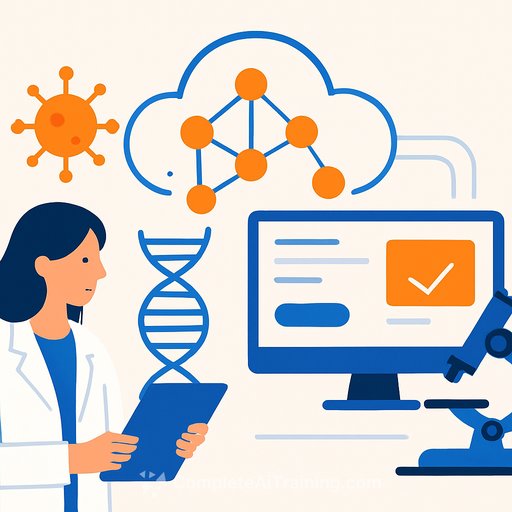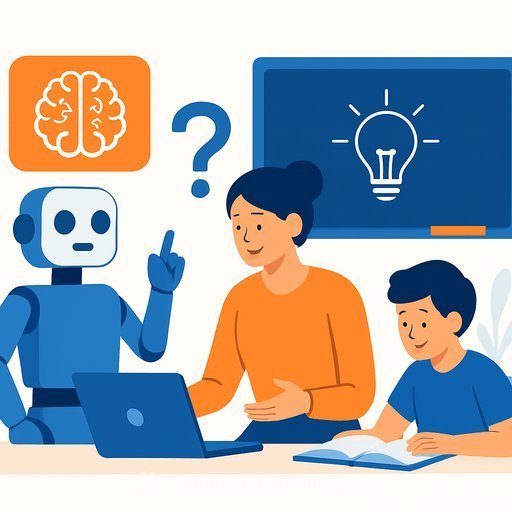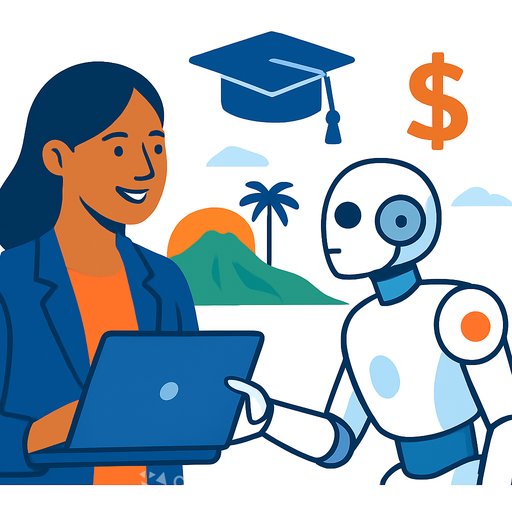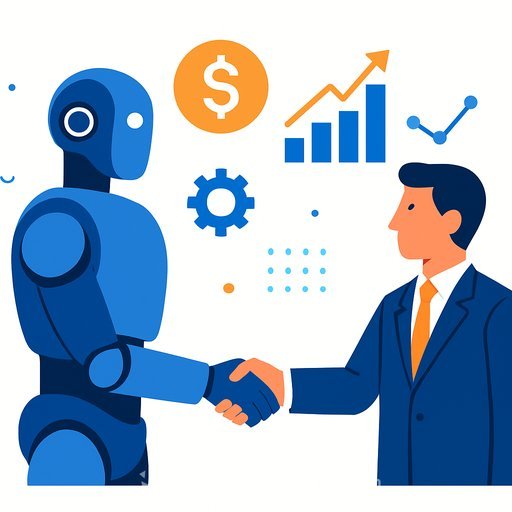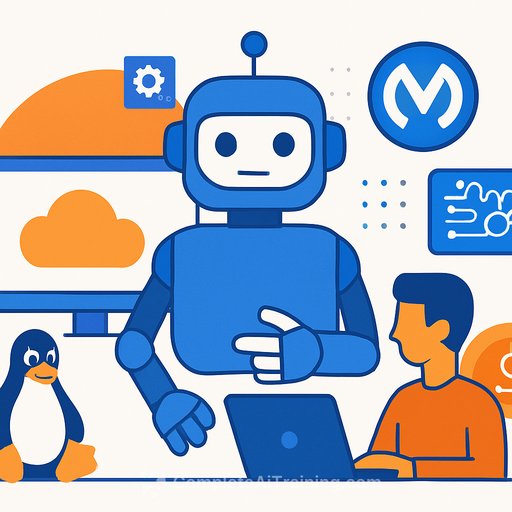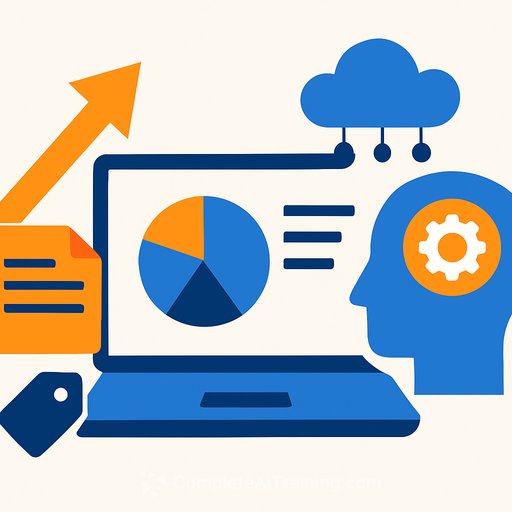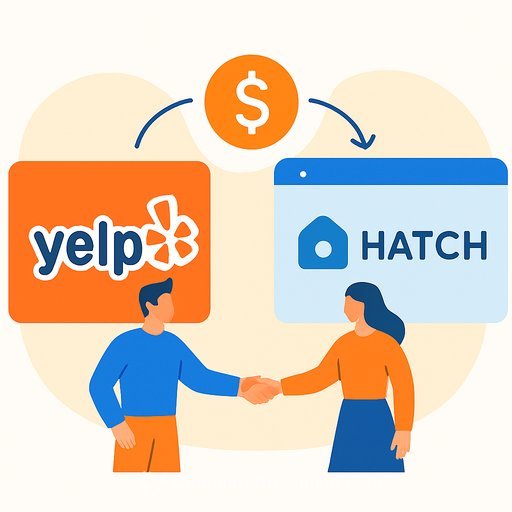How AI-powered search is changing research discovery
AI discovery tools are speeding up literature reviews and sharpening how teams manage knowledge. Many researchers say they now get high-quality overviews in minutes, then move faster to experiments and fieldwork where new results happen.
"There's a reason why every experiment starts with the review of the literature," said Eric Olson, CEO and co-founder of Consensus. "If you can help people do that part faster, more amazing things will happen for the world. Because more people can spend less time digging through papers and more time in the field."
How the new search layer works
Consensus provides access to 200+ million peer-reviewed papers across disciplines. Under the hood, about 30 models help parse queries, retrieve the most relevant papers, and generate summaries within seconds. Natural language queries are supported end to end, from detecting the query's language to classifying intent and extracting answers.
The product runs on a freemium model for individuals and organizations. With around 8 million users in 2025, Olson expects 25 million by the end of 2026.
The toolset researchers are using
The market is crowded and useful-each platform solves a different job:
- General research tools: Google Scholar, Scopus AI (Elsevier), Elicit, Perplexity
- Visual mapping: ResearchRabbit, Connected Papers
- Science-focused: Scite, Semantic Scholar, OpenAlex
- Specialist integrity checks: Proofig AI for images and gels
What improves for teams
"AI-powered search tools have significantly accelerated the literature review process, reducing hours of manual searching and extraction," said Vangelis Tsiligkiris of Nottingham Business School. The shift is clear: less time on retrieval, more on interpretation and decision-making.
Audencia Business School's Thibaut Bardon noted broader access for people outside traditional institutions. "For practitioners and policymakers without institutional access to subscription-based databases, such tools can also democratise access to scientific knowledge."
Quality, trust, and hallucinations
Concerns persist. "It's really hard to find just peer-reviewed articles when you are using a search engine like Google Scholar," said Alvina Lai, a PhD student in Toronto. Others point to "ghost" citations and plausible but false claims from large models.
Olson says Consensus addresses this by sourcing only peer-reviewed papers, running weekly quality checks, and benchmarking against Google Scholar. "We are a search engine with AI models built in. Every paper Consensus cites is guaranteed to be real, and every summary is based on actual research-not a model's guess." He adds that misinterpretations can still happen, so Consensus uses "checker models" before summarising and makes it easy to inspect the original sources.
Transparency: show your work
"AI search tools do not simply retrieve information; they shape what becomes visible and what remains unseen," said James Yoonil Auh of Kyung Hee Cyber University. The unease: users often can't see how answers were composed or which sources were prioritised.
Researcher Alysha D'Souza wants clarity on the search strategy: which databases were included, what got excluded and why, whether grey literature was considered, and any language limits. She notes some tools, including Consensus, now cite every article directly in summaries, making verification easier.
If you run a team, ask your tools to make this explicit:
- Source list, coverage dates, and inclusion/exclusion rules
- Handling of non-English papers and translations
- Grey literature policy and filters
- Citation-level traceability to claims in summaries
- Change logs when models or indexes are updated
Nuance, frontier work, and where AI falls short
Melvyn Morris of Corpora.ai argues that many LLM-based tools reinforce dominant paradigms, which can flatten nuance-especially in the humanities and exploratory science. Genuine frontier work often lives in uncertainty and contested interpretations.
Olson is candid that Consensus works best for factual or well-defined questions. The system helps rewrite queries to be more precise, then offers ways to organise, export, question subsets of papers, and view results in tables or lists-useful for mapping a field before deeper reading.
Access and equity
Some worry AI could widen gaps for regions without strong research infrastructure. Olson points to global availability, 200-language search, and built-in translation. He shared a classroom in Malawi using the tool as a positive signal for access.
A practical workflow that teams can trust
- Start broad, then narrow: run an AI overview, set time bounds, and lock your key terms.
- Layer verification: open the cited papers, check methods and samples, and flag contradictions.
- Capture the trail: export results with citations; keep a living doc of inclusion/exclusion decisions.
- Protect nuance: for conceptual topics, move from summaries to close reading early.
- Institute a "no ghost citation" rule: every claim must trace to a real, accessible source.
- Mix methods: AI for speed and coverage; manual checks for depth and interpretation.
What academics are settling on
"Depending on how deeply I need to understand a topic, I still rely on traditional methods," said D'Souza. "For getting an early sense of the research, AI helps me narrow the field and find relevant articles more efficiently. I also use AI as a backup check when I run full, traditional searches."
Tsiligkiris believes the priority is to redefine the human role in research, not replace it. Auh adds that the job is to keep the art of questioning alive as more steps get automated. Olson agrees: "We are not setting out to build the AI scientist… Our aim is to provide an AI operating system that can help people do research faster and better in a fundamentally human way."
For managers: skills and standards
- Create team guidelines for AI-assisted reviews, including transparency and verification steps.
- Train people on query design, bias checks, and reading strategies post-summary.
- Standardise exports, tagging, and versioning to make findings auditable.
- Adopt two-tool validation for critical claims (e.g., Consensus plus a second index).
If you're building team capability for AI-assisted research, explore focused training by role at Complete AI Training.
Sponsored by Consensus.
Your membership also unlocks:



